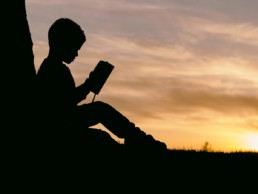How Might Domestic Abuse Be Impacting Your Loved Ones?
So, you’re on the journey towards building healthier relationships in your life, the first step to change is acknowledging there is a problem. If you’re unsure whether your behaviour is domestic abuse, read our What Does Domestic Abuse Look Like? page.
If you are beginning to wonder whether your behaviour is hurting your loved ones, The Jenkins Centre and our support programmes can help. Firstly, let’s look a little deeper into the impact your behaviour may be having.
The impact of domestic abuse often goes well beyond the initial physical harm. It leaves long lasting negative impacts. These can be emotional, psychological, isolation, financial and social, and can have a huge impact on children too.
PHYSICAL CONSEQUENCES
Victims of physical abuse often suffer injuries ranging from bruises to broken bones, impacting their overall health and well-being.
As well as the shorter-term physical injuries, abuse can also leave victims with long term health conditions such as epilepsy, mobility issues and deafness.
Experiencing domestic abuse can lead to self-harm, with around three women a week dying by suicide as a result of domestic abuse.
EMOTIONAL & PSYCHOLOGICAL CONSEQUENCES
Abuse can lead to anxiety, depression, post-traumatic stress disorder, low self-esteem, and even suicidal thoughts.
Women who have experienced domestic abuse are 3 times more likely to be diagnosed with depression, and 5 times more likely to commit suicide.
ISOLATION & BROKEN RELATIONSHIPS
Abusive behaviour often leads to social isolation as victims may withdraw from friends and family, fracturing their relationships with loved ones.
IMPACT ON CHILDREN
Children are affected by domestic abuse both directly and indirectly. The impact of domestic abuse on children means they are more likely to suffer emotional, behavioural, and cognitive issues that may extend beyond childhood and into their adult life. In fact, the impact on children can be so severe, that the Domestic Abuse Act 2021 sees any child who sees or hears abuse in the home as a victim of abuse themselves.
CYCLE OF ABUSE
1 in 3 children who are impacted by domestic abuse, go on to become abused in their adult life, with hearing and seeing abuse as a young person affecting their ability to form healthy intimate relationships, or trust people. To find out more about how experiencing domestic abuse can impact children, read our blog.
USE YOUR STRENGTH TO CHANGE
If you’ve read these impacts of abuse and think that your behaviour is harmful, you’re in the right place.
We know acknowledging the impact of your behaviour can be difficult, but reaching out for help shows strength and motivation. You can do this, and we’re here to help.
The support available at The Jenkins Centre is designed to help people just like you. We can provide guidance and advice on how to change your behaviours, and work to help you build healthier, more respectful relationships.
Our non-judgemental support is available for you. You can find out more about the support available here, or get in touch with us today.
HELPFUL INFORMATION
Nothing found.





